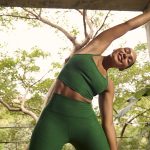By Charlie Lunan
At the tender age of 32, Adam Geisler presides over Everlast Worldwide Inc., a company that has been synonymous with boxing for 98 years. And like the sport itself, Everlast has had its share of tough bouts.
As boxings popularity waned in the 1990s, some wondered if Everlast would soon go down for the count. By 2000, after the companys fortunes had steeply declined, the business was acquired by apparel licensee George Horowitz. For the following six years, Everlast seesawed between emphasizing its roots in boxing hardgoods, and succumbing to the lure of the much larger apparel market. After Horowitz passed away in 2005, the companys board put Everlast up for sale and a bidding war ensued. In September 2007, it was acquired by a subsidiary of U.K. retailer and brand owner Sports Direct International plc for $168 million in cash.
On March 17, 2008, Brand Holdings named Geisler-who had
been serving as the brands SVP of marketing-as president of Everlast. To get the company back in fighting shape, Geisler plans to enter the fitness market, and has even designed a sleek new logo to help with the transition. His focus is on growing Everlasts wholesale business, which now generates $50 million in annual revenues. The company earns another $15 million from licensing the brand.
Everlast is also partnering with celebrity athletes and
fitness clubs to develop fitness classes that will drive more people into retail stores to buy its apparel, gloves, mitts, headgear and other products.
Toward this end, Everlast released the Teddy Atlas Workout System in March-which consists of a heavy punching bag and training instructions from the famous boxing trainer-and retails for $200. In April, Everlast became the exclusive provider of fight shorts, fight gloves and training equipment to UFC champion Randy Couture and his Xtreme Couture Gyms. And in May, Everlast launched a 45-minute shadow boxing class in 250 locations of 24 Hour Fitness. The deal stipulates that Everlast will offer discounts on its gear to 24 Hour Fitness members and trainers, and 24 Hour Fitness will display Everlast signage and sell Everlast gear exclusively.
Here, Geisler discusses the powerful combination that will help Everlast regain its championship form.
SGB: What is the outlook for the sport of boxing?
GEISLER: From a professional standpoint, its the back page of the sports section. Boxing has its ebbs and flows. Oscar De La Hoya had some record pay-per-view that other sports have not paralleled. Where its really hurt is that we dont have a heavyweight champion that people really recognize. Its very strong in the middleweight and welterweight [divisions].
SGB: Since boxing is a declining market, how will you grow Everlast?
GEISLER: We have very strong, unaided brand awareness. When we surveyed consumers two years ago and asked, “What are your favorite activewear brands,” [Everlast] came up 66 percent of the time. Weve been very encouraged by this. Its a very tough and durable brand, but those are product attributes, not brand attributes. If we get this right and nail the brand strategy, if we can evolve that message, we have a lot of potential here. We were born in the ring, born in the gym. The question is how do we evolve beyond the ropes into other gym activities?
What we heard from consumers is that they understand us in that space. Consumers understand that brands can start in one category and move to another. We are already in 25 percent of all health clubs as a bag or a ring. The goal is to play off our heritage in weightlifting, cardio and aerobics. The thing about boxing is that for fitness, there is no other activity like it. There are few, if any, sports that work your core from an aerobic and anaerobic aspect the way boxing does. When you box, it mentally and physically makes you better.
The cost of entry is $100 to $150, all in, with a workout that gets you aerobic, anaerobic, upper body and lower body exercise. We want to own the gym and active gym users.
SGB: Whats your strategy for growing in the gym space?
GEISLER: We have developed partnerships with 24 Hour Fitness and Lifetime Fitness. These are two gyms that, for all intents and purposes, have not had any boxing. We are talking about going from 3,000 gyms to tens of thousands. Their trainers are the biggest advocates for us; they are our athletes.
Its a lot about personal training. We want to evolve from group fitness to one-on-one training. Its a revenue-generating opportunity for trainers. Teddy Atlas is training the trainers, giving them USA Boxing certification. Hes teaching them that its about finding that moment within the individual where they are finding that greatness within themselves, whether they are hitting a heavy bag for another two minutes with their mitts or skipping rope for another two minutes.
SGB: Gyms have tried boxing-based classes before. How will Everlast succeed where others have failed?
GEISLER: We bring an authenticity and legitimacy to an exercise that is bringing in both male and female consumers, and that is something very intriguing. Because we are the marketing partner, participation rates are much higher than in most classes [gyms] launched-50 to 60 participants versus 30. The gyms like to align themselves with real brands. It helps with membership retention and is an added value. There are also additional revenue opportunities.
SGB: To what extent is your strategy tied to the growing popularity of Mixed Martial Arts (MMA)?
GEISLER: Our belief is that MMA is here to stay. Its a great combination of many things, which is still very strong. It has been the largest-growing fitness category over the last three years and is pushing hardgoods growth. In our direct business, we are seeing MMA getting very close to our boxing business. If we have a similar size, we know what the exponential opportunity is. Weve watched those growth rates very closely. We are seeing it from participation standpoint. We are hearing a lot from women requesting MMA product. Its mostly training. The opportunity is to translate a very popular sport into fitness training, to something the mainstream consumer can do.
SGB: How far will you try to take the Everlast brand?
GEISLER: We can definitely get broader. Could we have a cologne? Maybe. Does it make sense for the cologne? Maybe not. Our goal for right now is to be the best in boxing equipment, MMA equipment, and in activewear. Cardio and strength and home equipment businesses all have potential.
SGB: If Everlast can grow more in the gym and MMA, why bother with boxing?
GEISLER: To do that we have to be the number one brand in the boxing ring, because we cant ask anyone to look at our product extensions if we are not as strong as















